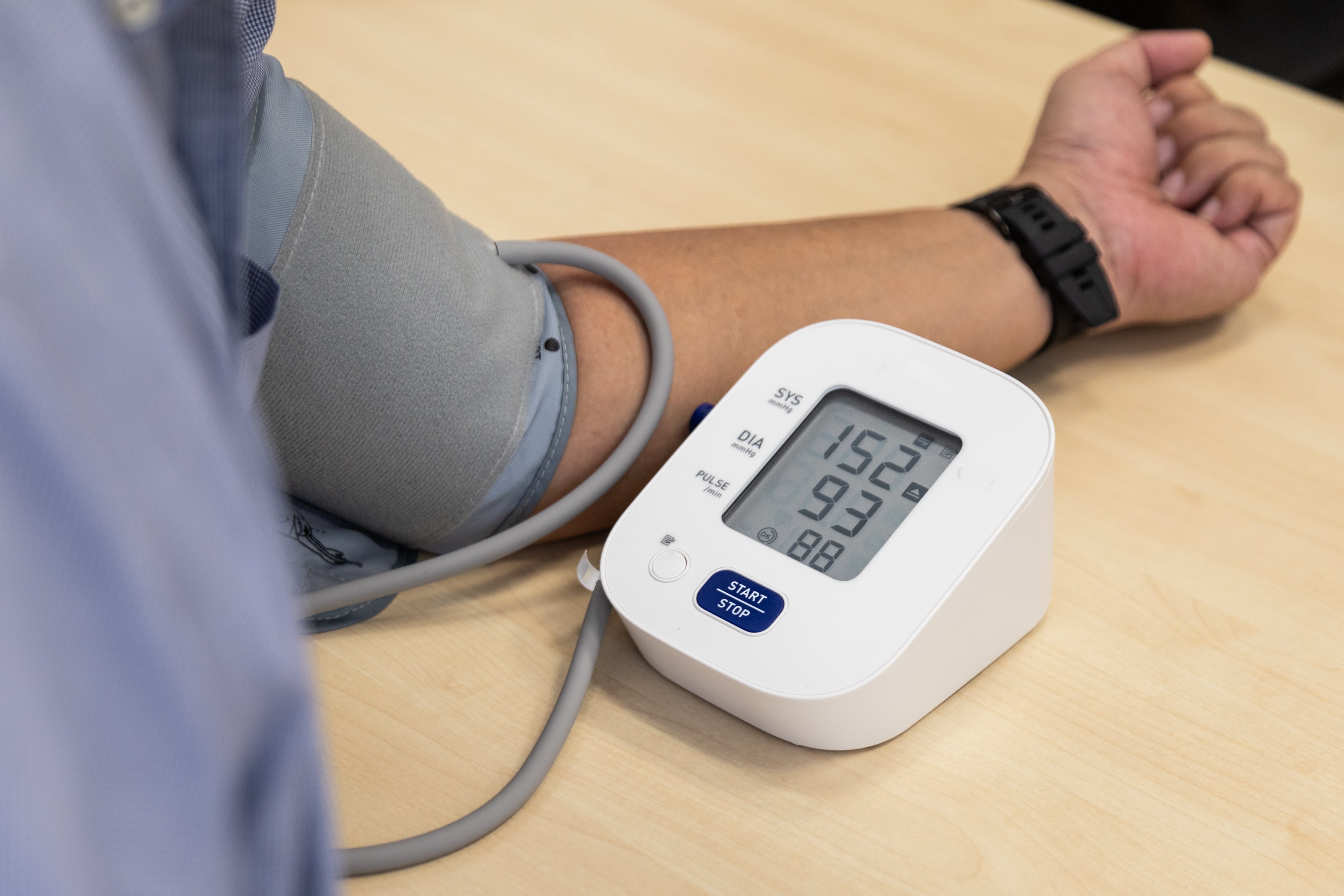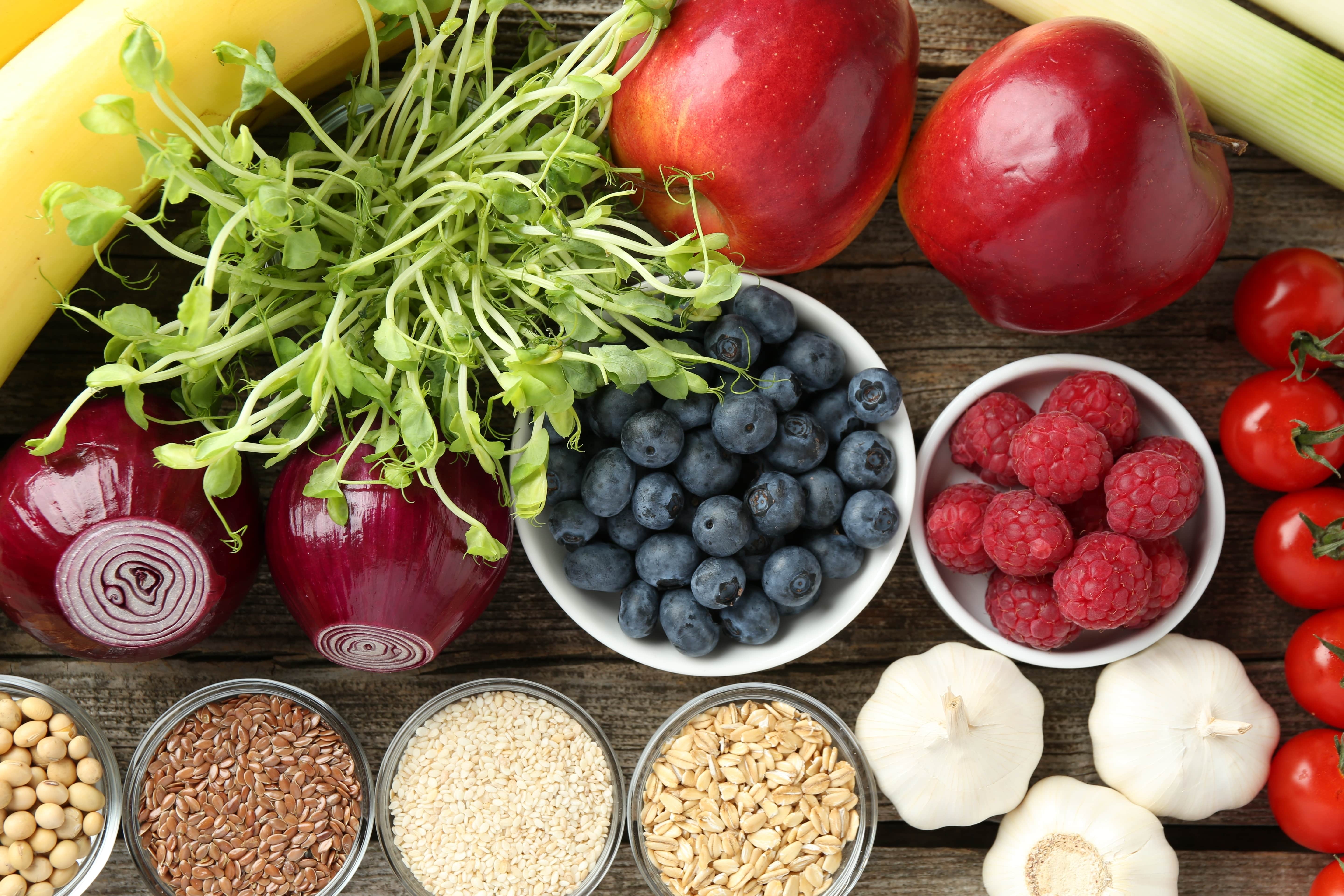Biohacking Your Health: Which Foods Can Help Manage High Blood Pressure
Last Updated: 02 January 2026

High blood pressure, also known as hypertension, is one of the most common health conditions worldwide and a leading risk factor for heart disease and stroke. While medication plays a vital role in controlling blood pressure, nutrition is also important and can have a significant impact on management of high blood pressure. Understanding which foods can support your treatment and how they interact with prescribed medicines can help you take greater control of your health.
The insights in this article are provided by Vivere's Head of Nutrition, Yusra Serdaroglu Aydin, a registered dietitian with a background in nutrition, food engineering and culinary arts. Her approach is grounded in science and shaped by a strong understanding of personalised nutrition and the human microbiome.
Key Takeaways
Here are the five biggest takeaways from this article about foods that can help with high blood pressure:
Certain foods can support the effectiveness of blood pressure medication by improving heart and vascular health.
Some foods and drinks, such as liquorice or grapefruit juice, may interfere with how medication is absorbed or metabolised.
A diet rich in whole grains, fruits, vegetables and lean protein can reduce blood pressure naturally and complement prescribed treatment.
Potassium-rich foods, like bananas and spinach, may counteract the negative effects of sodium and help regulate blood pressure.
Regular consultation with a healthcare professional is essential to ensure food and medication choices work safely together.
Why Nutrition Matters When Taking Blood Pressure Medication
Medication can significantly reduce the risks associated with high blood pressure, but it is not a cure and lifestyle changes shouldn’t be ignored, even if medication is recommended. The foods you eat play a powerful role in either supporting or hindering treatment. Nutrition influences blood vessel function, cholesterol levels, kidney health and fluid balance, all of which affect blood pressure. By making informed dietary choices, you can support the effectiveness of your medication while improving your overall well-being.

Foods and Drinks That Support Blood Pressure Management
DASH Diet
The DASH diet, which stands for Dietary Approaches to Stop Hypertension, is a well-researched eating plan developed specifically to help lower and manage high blood pressure [1].
The diet emphasises:
Fruits and vegetables: At least 5 portions a day and a good variety, providing fibre, potassium and antioxidants.
Wholegrains: Brown rice, oats, wholemeal bread and pasta to support cholesterol control and sustained energy.
Lean proteins: Poultry, fish, beans and lentils instead of red or processed meats.
Low-fat dairy: Yoghurt, milk and cheese for calcium without excessive saturated fat.
Nuts, seeds and legumes: Sources of magnesium, protein and healthy fats.
Reduced salt intake: The diet encourages using herbs, spices and citrus for flavour rather than salt.
Research shows that following the DASH diet can reduce blood pressure within just a few weeks. It is especially effective when combined with reduced salt intake, ideally less than 6g a day, which is around 1 teaspoon.
Whole Grains
Whole grains such as oats, brown rice and wholemeal bread are rich in fibre and nutrients that help maintain healthy blood vessels [2] [3]. Fibre supports better cholesterol control, reducing strain on the heart and arteries. Incorporating these foods alongside prescribed medication can make treatment more effective in the long term.
Fruits and Vegetables
Fruits and vegetables are rich in vitamins, minerals and antioxidants that protect cardiovascular health [4] [5]. Leafy greens like spinach and kale provide potassium, which helps balance sodium levels in the body. Berries contain flavonoids that improve vascular function and reduce inflammation, while citrus fruits contribute vitamin C, supporting healthy blood vessel walls.
Proteins, Acids and Plant-Based Options
Skinless poultry, fish, beans and lentils are excellent sources of lean protein [6]. Fatty fish such as salmon and mackerel contain omega-3 fatty acids, known to reduce inflammation and lower blood pressure [7] [8]. Plant-based proteins, including beans and tofu, provide additional fibre and micronutrients that complement medication [9].
Nuts and Seeds
Almonds, walnuts, chia seeds and flaxseeds are rich in magnesium and healthy fats, which support heart health [10] [11] [12]. They may also help relax blood vessels, aiding in the natural regulation of blood pressure.
Low-Fat Dairy
Low-fat yoghurt and milk provide calcium and protein without the saturated fat found in full-fat versions. Calcium supports blood vessel contraction and relaxation, which is essential for blood pressure control [13] [14] [15].
Hydration
Staying well hydrated is an important but often overlooked part of managing blood pressure. Water plays a central role in maintaining the balance of fluids in the body, supporting kidney function and helping blood vessels stay flexible.
However, it is worth being mindful of the type of water you drink. Mineral waters vary in their content of minerals such as calcium, magnesium and sodium. While calcium and magnesium can support vascular health, some mineral waters are naturally high in sodium, which may reduce the effectiveness of medication.
Foods and Drinks That May Interfere with Medication
Grapefruit and Grapefruit Juice
Grapefruit can interfere with enzymes in the liver that metabolise many blood pressure medications, including calcium channel blockers. This can lead to higher levels of medication in the blood and increase the risk of side effects [16] [17].
Liquorice
Liquorice, often found in sweets or teas, contains glycyrrhizin, which can cause the body to retain sodium and lose potassium. This may raise blood pressure and counteract the effects of medication [18].
Excessive Alcohol
Drinking too much alcohol can raise blood pressure and reduce the effectiveness of medicines [19] [20]. Moderation is essential, and those on certain medications may need to avoid alcohol altogether.
High-Sodium Processed Foods
Ready meals, crisps and processed meats are often very high in salt, which can directly raise blood pressure and reduce the impact of medication [21] [22] [23]. Checking food labels and cooking at home with fresh ingredients is a safer approach. In the UK, foods containing 1.5g or more salt per 100g, are considered high in salt. Keep in mind the maximum daily recommended amount of 6g per day when you are choosing packaged foods or cooking at home.
Caffeine
Caffeine can temporarily increase blood pressure in sensitive individuals [24]. While moderate consumption of tea and coffee is usually safe, monitoring your response is important if you take medication.
The Role of Potassium in Blood Pressure Control
Potassium is a vital mineral that helps balance sodium levels and supports muscle function, including the heart. A potassium-rich diet can improve the effectiveness of medication and lower blood pressure naturally [25] [26]. Foods such as bananas, sweet potatoes, beans and avocados are excellent sources.
However, some blood pressure medicines, particularly ACE inhibitors and potassium-sparing diuretics, can increase potassium levels too much [27]. It is important to discuss dietary potassium intake with your healthcare provider, particularly if you are on medication.
Lifestyle Considerations
While food plays a central role, lifestyle choices also affect how well medication works. Regular physical activity, maintaining a healthy weight, reducing stress and avoiding smoking all contribute to better blood pressure management [28] [29] [30]. Combining these habits with good nutrition and prescribed medication offers the best chance of long-term control.
The Gut Microbiome and Personalised Nutrition
The gut microbiome is increasingly recognised as an important factor in blood pressure regulation. Trillions of bacteria live in the digestive system, and their balance influences inflammation, blood vessel function, metabolism and even the way the body processes nutrients.
Gut microbiome analysis, such as that offered by Vivere, provides a detailed picture of the bacteria and microorganisms present in your digestive system. By identifying imbalances or deficiencies, this type of testing can highlight specific areas where dietary or lifestyle changes may improve health.
Personalised nutrition from Vivere builds on this. Instead of applying a one-size-fits-all approach, we use your microbiome results alongside clinical knowledge to create a plan that works with your unique biology. This may include specific dietary adjustments, science-backed supplements or strategies to improve gut health, all designed to support blood pressure control while considering your wider wellbeing.
Nutritionist's Corner: Final Thoughts
"Managing high blood pressure requires a balance between effective medication and supportive dietary choices. Foods rich in fibre, potassium and healthy fats can help improve heart and blood vessel health, while certain foods and drinks may interfere with treatment. Taking a mindful approach to nutrition not only supports your prescribed medication but also helps reduce the long-term risks of hypertension".
"When managing high blood pressure, it’s crucial you take any prescribed medication, although it’s also about understanding how everyday food choices can either support or undermine treatment. By focusing on whole, nutrient-dense foods while being mindful of interactions like salt, alcohol or grapefruit, nutrition becomes a powerful tool that works alongside medical care to protect heart health and reduce long-term risk".
Vivere helps you take control of your health with personalised insights from state-of-the-art gut microbiome testing, nutritional guidance, science-backed supplements, NAD+ injections and expert support. Sign up today and start living better, for longer.
Sources
[1] DASH Eating Plan | NHLBI, NIH
[6] The best and worst foods for high blood pressure - BHF
[9] Plant-based proteins may help lower high blood pressure risk | American Heart Association
[15] What's the deal with dairy and heart health? - Harvard Health
[16] Grapefruit–medication interactions: Forbidden fruit or avoidable consequences? - PMC
[17] Grapefruit and medication: A cautionary note - Harvard Health
[18] Grapefruit, liquorice and your medicines - British Liver Trust
[19] Alcohol-Medication Interactions: Potentially Dangerous Mixes - NIH
[20] Alcohol and Medication Interactions - PMC
[21] Sodium Intake and Hypertension - PMC
[22] Salt and hypertension: current views - European Society of Cardiology
[23] Effect of Dietary Sodium on Blood Pressure: A Crossover Trial - PubMed
[24] Am I drinking too much caffeine? - British Heart Foundation
[25] Can potassium-rich foods lower your blood pressure and keep your heart healthy? | BHF
[26] Should we eat more potassium to better control blood pressure in hypertension? - PubMed
[27] ACE Inhibitors - StatPearls - NCBI Bookshelf
[28] Influence of Physical Activity on Hypertension and Cardiac Structure and Function - PMC
[30] Potential benefits of exercise on blood pressure and vascular function - ScienceDirect
Author

Yusra Serdaroglu Aydin, MSc RD
Head of Nutrition and Registered Dietitian
Yusra is a registered dietitian with a multidisciplinary background in nutrition, food engineering, and culinary arts. During her education, her curio...
Peer Reviewed by

Emily Stuart, RD
Dietitian
Emily is a Registered Dietitian, health writer, and professional chef with a unique blend of clinical, culinary, and communication expertise. She has...